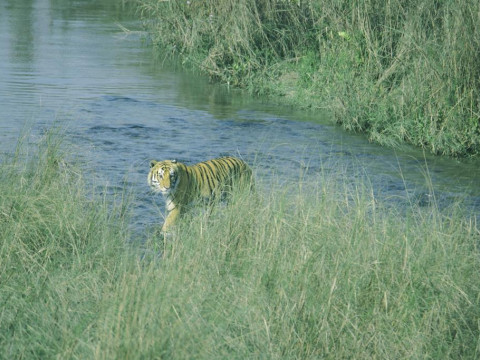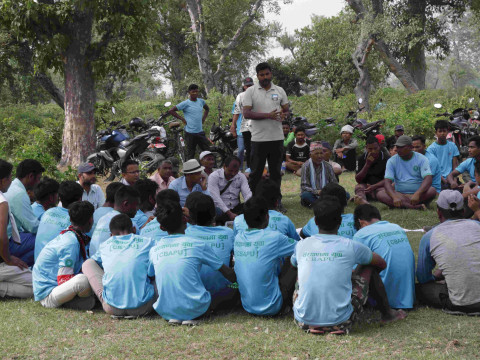Overview
Globally threatened rhinoceros and tigers in Nepal face habitat loss, poaching, and community conflicts. Conservation efforts have shown progress in population growth, but recent challenges include increased poaching, habitat degradation, and declining population growth rates. Many previously convicted poachers have been released from jail and COVID-19 pandemic-driven economic hardships pose further threats. This project aims to combat these issues through alternative economic opportunities, community awareness, tackling habitat degradation and improving wildlife health capacity.
Project objectives
- Reduce poaching threats through community engagement
- Improve habitat through active grassland and wetland management
- Increasing the growth rate through biological management and close surveillance of rhinos
- Strengthen wildlife health capacity for understanding the rhino population health and causes of increased rhino mortality in recent years
Expected outputs
- 2,000 community members and students reached through awareness programs
- 100 households affected by poaching and illegal wildlife trade have access to alternative livelihood
- 400 hectares of grassland managed as highly productive grazing lawns and five wetland sites restored
- 25 guard posts engaged in ID-based rhino monitoring and surveillance
- Thermal sensor drones piloted for rhino survey
- ~15 rhinos internally translocated to manage population density imbalance
- Increased laboratory facilities and veterinary service for disease diagnosis and treatment of rhinos and other wildlife
Project partners
Chitwan National Park (CNP), Divisional Forest Office and Community Forest User Groups, Rapti and Kalika Municipalities
Project duration
November 2021 to October 2025
Budget
$ 837,436 ($483,480 USFWS, $286,546, $56,710 CNP)
Principal Investigator (PI): Dr. Naresh Subedi, Conservation Program Director, NTNC
(nareshsubedi@gmail.com, 9855056934
Co-PI: Rachana Shah, Project Manager, Biodiversity Conservation Center, NTNC (rachanasayshi@yahoo.com, 9851228323)
The project is funded by the Rhinoceros and Tiger Conservation Fund of the United States Fish and Wildlife Service (USFWS).








